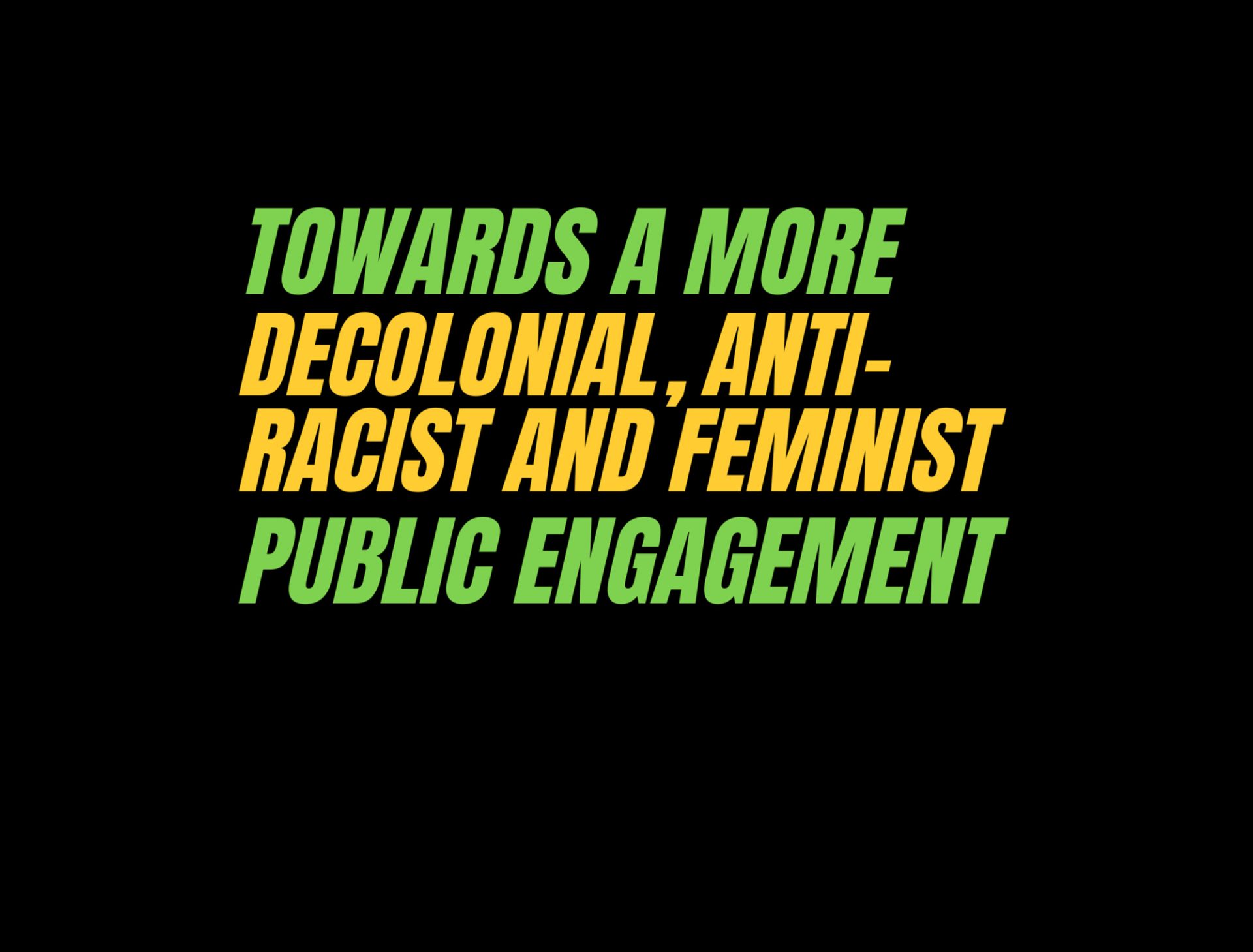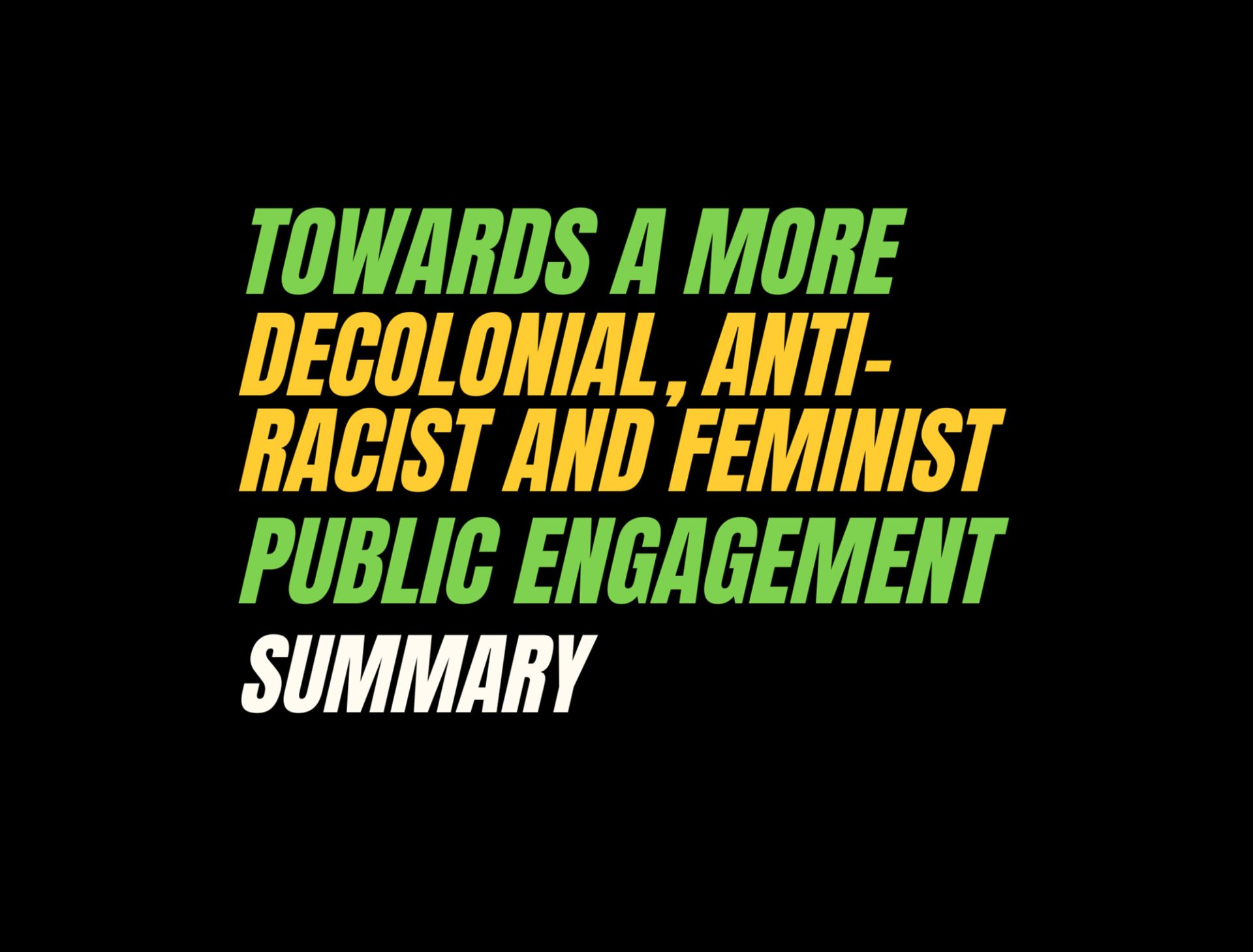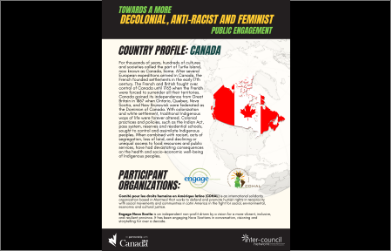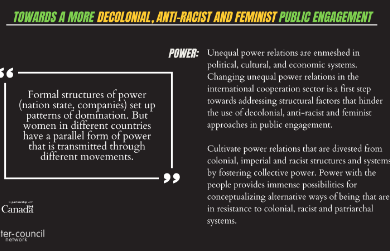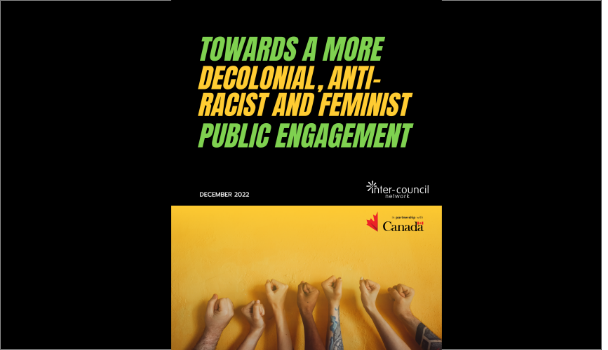About the Research
This research focuses on better practices in public engagement in the international cooperation sector. To strengthen sector actors’ public engagement work, the ICN explores decolonial, anti-racist and feminist approaches. Broadly, this research focuses on big social justice questions around equity and power providing space for introspection and aims to:
- Highlight decolonial, anti-racist and feminist practices in public engagement from different locations with different actors;
- Curate tools and practices that can inform more ethical practices in our decolonial, anti-racist and feminist work;
- and shape narratives and priorities in policy and practice within the sector that will hopefully contribute to transformative change.
The research outcomes are shared in the following:
- A short introduction video explaining the reasons behind the research
- A research summary document (1 pager)
- A research report (long version)
- Infographics with key highlights
- A methods blog explaining the research process
- Country profiles with more information about where research participants are based.

